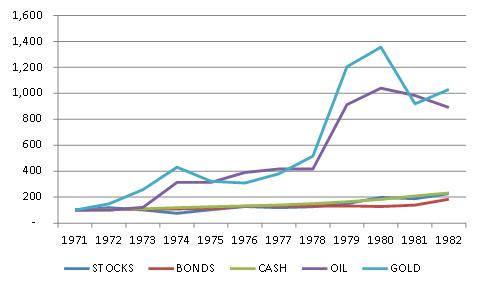The European Central Bank (ECB) is planning to pump 1.1 trillion euro’s into the banking system to fend off price deflation and revive economic activity. The ECB president and his executive board are planning to spend 60 billion euro’s a month from March 2015 to September 2016.
Most experts hold that the ECB must start acting aggressively against the danger of deflation. The yearly rate of growth of the consumer price index (CPI) fell to minus 0.2% in December last year from 0.3% in November and 0.8% in December 2013.
Many commentators are of the view that the ECB should initiate an aggressive phase of monetary pumping along the lines of the US central bank. Moreover the balance sheet of the ECB has in fact been shrinking. On this the yearly rate of growth of the ECB balance sheet stood at minus 2.1% in January against minus 8.5% in December. Note that in January last year the yearly rate of growth stood at minus 24.4%.
EMU CPI
Why is a declining rate of inflation bad for economic growth? According to the popular way of thinking declining price inflation sets in motion declining inflation expectations. This, so it is held, is likely to cause consumers to postpone their buying at present and that in turn is likely to undermine the pace of economic growth.
In order to maintain their lives and well being individuals must buy present goods and services, so from this perspective a fall in prices as such is not going to curtail consumer outlays. Furthermore, a fall in the growth momentum of prices is always good for the economy.
An expansion of real wealth for a given stock of money is going to manifest in a decline in prices (remember a price is the amount of money per unit of real stuff), so why should this be regarded as bad for the economy?
After all, what we have here is an expansion of real wealth. A fall in prices implies a rise in the purchasing power of money, and this in turn means that many more individuals can now benefit from the expansion in real wealth.
Now, if we observe a decline in prices on account of an economic bust, which eliminates various non-productive bubble activities, why is this bad for the economy?
The liquidation of non-productive bubble activities – which is associated with a decline in the growth momentum of prices of various goods previously supported by non-productive activities – is good news for wealth generation.
The liquidation of bubble activities implies that less real wealth is going to be diverted from wealth generators. Consequently, this will enable them to lift the pace of wealth generation. (With more wealth at their disposal they will be able to generate more wealth).
So as one can see a fall in price momentum is always good news for the economy since it reflects an expansion or a potential expansion in real wealth.
Hence a policy aimed at reversing a fall in the growth momentum of prices is going to undermine and not strengthen economic growth.
We hold that the various government measures of economic activity reflect monetary pumping and have nothing to do with true economic growth.
An increase in monetary pumping may set in motion a stronger pace of growth in an economic measure such as gross domestic product. This stronger growth however, should be regarded as a strengthening in the pace of economic impoverishment.
It is not possible to produce genuine economic growth by means of monetary pumping and an artificial lowering of interest rates. If this could have been done by now world poverty would have been erased.
Summary and conclusion
The European Central Bank (ECB) is planning to pump 1.1 trillion euro’s into the banking system to fend off price deflation and revive economic activity in the Euro-zone. Most experts are supportive of the ECB’s plan. We question the whole logic of the monetary pumping.
A fall in the growth momentum of prices either on account of real wealth expansion or on account of the demise of bubble activities is always good news for wealth producers.
Hence any policy that is aimed at preventing a fall in prices is only likely to strengthen bubble activities and undermine the process of wealth generation.




I had thought that it was now widely recognised that inflation was a phenomonum caused by an expansion of the money supply not accompanied by an expansion of the goods it intermediates for.
In this event the value of money becomes relatively less and the price of goods increase.
If this is the case and the opposite effect would cause money to become relatively more valuable (deflation) then the decrease in the price of oil alone cannot be a sign of deflation.
This is all old hat so why are the economists and central bankers talking as if the fall in the price of oil does anything other than take value away from the oil producing countries and repatriate it (so to speak) back with the consumers?
Some other agenda maybe.
I suppose that if competitor countries (like USA & UK) devalue by ‘Quantitative Easing’ the euro zone finds itself priced out of the market place, and may feel obliged to do a bit of devaluing in retaliation. Modern mercantilism.